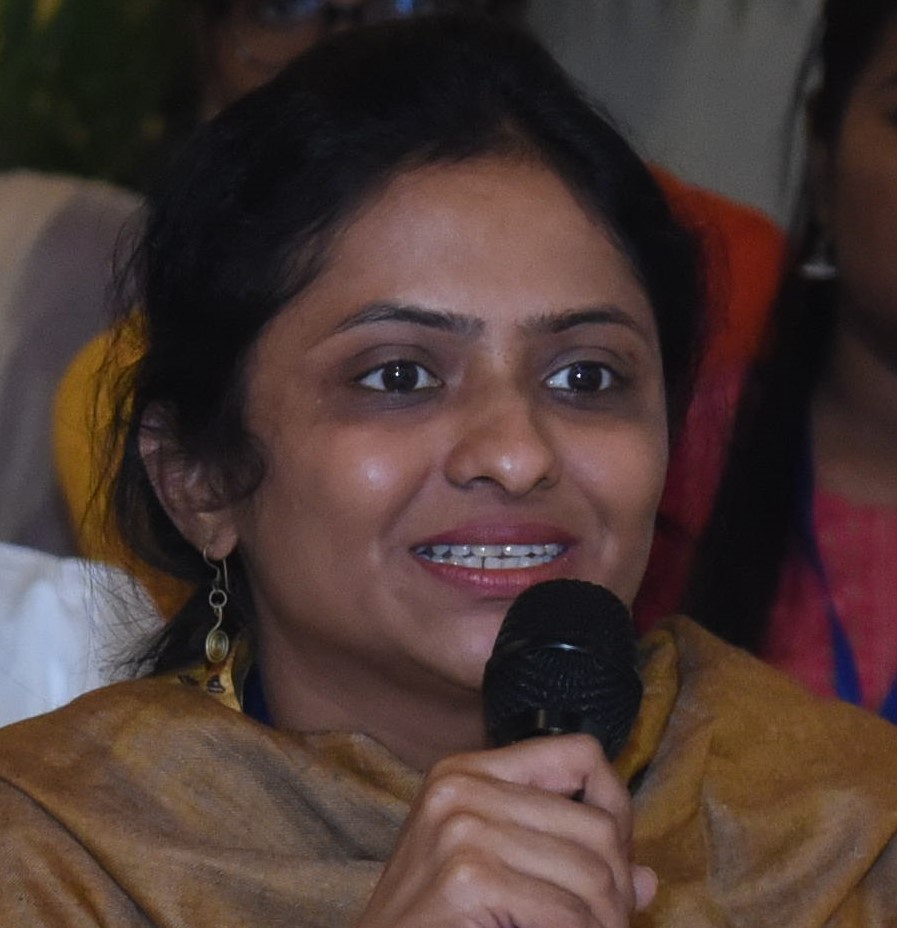Vishakha Singhania

Do you think that it is possible to live joyously, come what may?
To find out the answer do read on…
The year 2019 went by quickly. We created so many thought patterns. We structured and labelled given bits of information in different ways. Various events happened. We liked some of them. We did not like a few. We addressed a lot of issues – gender sensitive issues, issues on inclusion, equity and justice. We were proud of the deeper understanding as a collective human race, at times we were shocked to what was happening to humanity across the world. We applauded the achievements of our women comrades; at times we wished that we could have done more. India witnessed heart wrenching atrocities on women this year. Being a part of the collective whole of sisterhood: we heard, we saw and we felt!
Now, whether we create happiness or agony, the very fact that our collective ‘thinking abilities’ makes us a part of what we witness, fascinates me. The continuum of ‘thinking’ to ‘creating’ is a wonderful process indeed. Knowing, understanding, evaluating, applying, analyzing, and then creating – what a process! Critical thinking and Creativity, no wonder, is the mantra of the New Age Learning. Being an educator as well as a learner, my thoughts drifted to the deeper purpose of education. If the role of education is to stimulate intellect and create great thinkers (and thus doers, perhaps) we as a generation are doing a fantastic job. Never have the generations before been so creative. Look at science; look at the comforts and amazing structures that we have created.
Yet…there is a gap; a very big gap! Looking around the institutes of higher education and elsewhere too, we intelligent people do not seem to be too happy. Why? I thought hard. One thing became clear. ‘Thinking skills’ are not directly proportional to happiness. Intelligent people might not be happy and happy people need not be intelligent. In the course of this analysis and a search for a deeper truth, I hit my jackpot! I was able to find a crucial connect. As I longed to understand more, I chanced to hear Kerry Howell’s TED talk on “How thanking awakens out thinking.” The very title touched something deep within. “One of the most wonderful discoveries for me was that the words ‘think and thank’ come from the same root ‘thonc’. “If we thank what we think, we think in a more engaged way, we think better” explained Kerry.
With an attitude of gratitude in any situation, we let go of our seeming intelligence and trust the intelligence of the cosmos; thus rewiring our thoughts that assist us in making better decisions. The attitude of acceptance and surrender that gratitude brings along with it declutter the mind from unwanted and repetitive thoughts, helping us to focus on what is needed. The inner attitude of gratefulness is celebratory and magnifies goodness. One question that immediately comes to our mind is how can we be thankful in times of such adversity? It’s easy to feel grateful when things are going our way. But how can one be grateful when problems arise?
Being grateful when problems arise is not only helpful but essential. “Being grateful is a choice that endures and is relatively immune to the gains and losses that flow in and out of our lives,” says researcher Robert Emmons. With this kind of attitude you view life in its totality and do not become overwhelmed by a temporary situation. The lens of gratefulness is a catalyst to turn obstacles into opportunities. Being grateful does not mean that one does not acknowledge the negativity around. Higher education institutes have faced numerous problems: problems of access, equity, quality, gender related issues and more. But when such problems are acknowledged, accompanied with insight, a new perspective is gained, new lessons are learned. You begin to think better. You thank in turn and become more joyful.
As per Wikipedia, “India’s higher education system is the third largest in the world, next to The United States and China.” We have come a long way and further have miles to go. Let us celebrate the distance we have already covered. Let us inspire and be inspired for the journey ahead. Let us, for once, leave behind our labels and tags, our resentments, a feeling of entitlement as we walk into a situation. Let us take things for granted no more. The real purpose of education that is learning to appreciate life is achievable.
I am beginning to understand. I want thankfulness to lead me to better thoughts and good thoughts to thankfulness in turn. Living joyously irrespective of any situation does seem to be possible. I am willing to give it a try. What about you?
Happy 2020!

Vishakha Singhania Research Scholar in the field of Spiritual Communication and Corporate Feminism at Kalinga Institute of Industrial Technology, Bhubaneswar.
